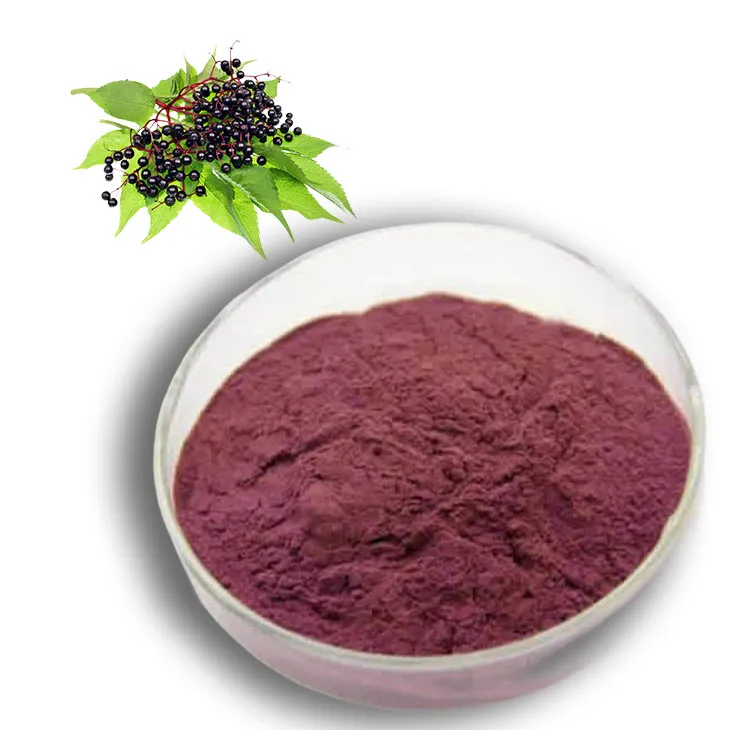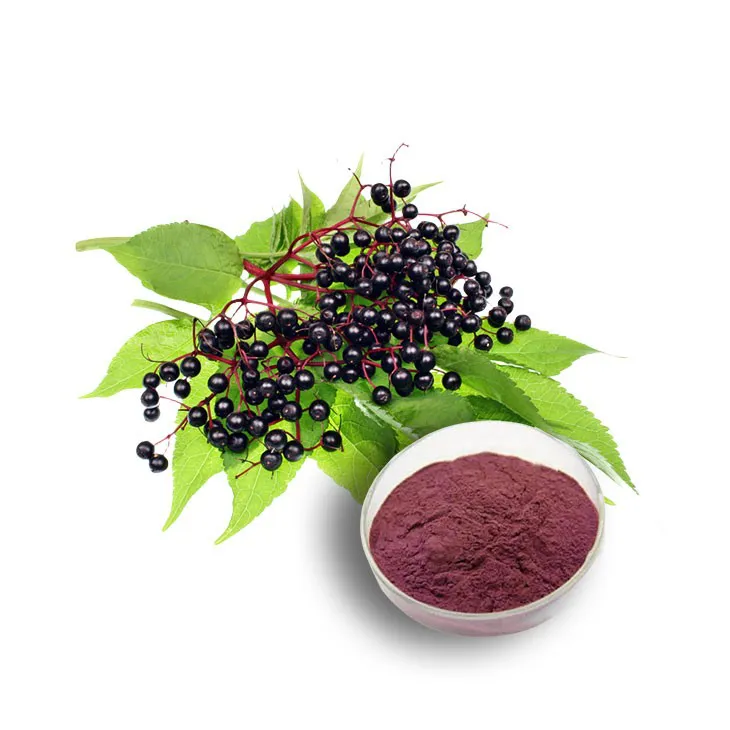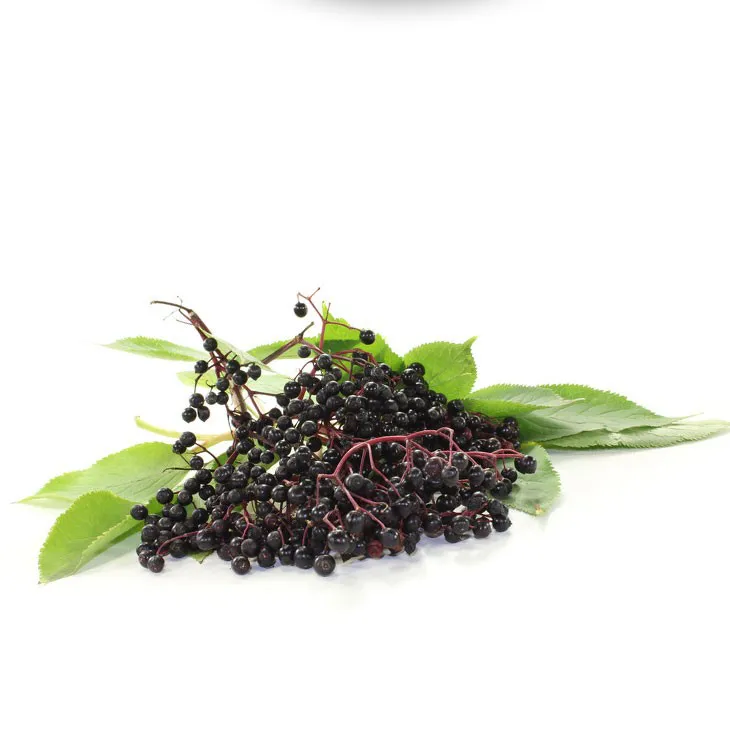- 0086-571-85302990
- sales@greenskybio.com
Using elderberry extract? Make sure you source from sustainable suppliers!
2024-12-15

1. Introduction
Elderberry Extract has gained significant popularity in recent years. It is lauded for its various health - promoting properties, such as its antioxidant, anti - inflammatory, and immune - boosting capabilities. As a result, it has found its way into a wide range of products, from dietary supplements to natural remedies and even some food and beverage items. However, in the midst of this growing demand, the origin and sourcing of Elderberry Extract have become crucial yet often overlooked aspects.

2. The Importance of Sustainable Sourcing
2.1 Long - term Viability of Elderberry Resources
Elderberries, like any natural resource, are not infinite. Unsustainable harvesting practices can lead to a depletion of elderberry populations. If we continue to over - harvest without proper management, we risk losing this valuable plant species altogether. Sustainable suppliers are those who ensure that the harvesting of elderberries is done in a way that allows the plants to regenerate and thrive. For example, they may limit the amount of berries harvested from a particular area each year, based on scientific assessments of the plant's growth rate and reproductive capacity.
By sourcing from sustainable suppliers, we contribute to the long - term availability of elderberries. This is not only important for the continued production of Elderberry Extract but also for the ecosystems in which elderberries play a role. Elderberries are a part of the food web, providing food for various wildlife species. Their presence in the landscape also contributes to soil stability and biodiversity.
2.2 Maintaining Purity and Potency of the Extract
Sustainable practices often go hand in hand with better quality control. Suppliers who are committed to sustainability are more likely to take measures to ensure the purity and potency of the elderberry extract. They may use organic farming methods, which avoid the use of harmful pesticides and fertilizers that could contaminate the berries and, in turn, the extract.
For instance, in sustainable elderberry farms, natural pest control methods such as introducing beneficial insects or using plant - based repellents are employed. This not only protects the environment but also results in cleaner, more pure berries. Additionally, proper harvesting and processing techniques are crucial for maintaining the potency of the extract. Sustainable suppliers are more likely to follow strict guidelines in these areas, ensuring that the active compounds in the elderberries are preserved during extraction.
2.3 Positive Influence on the Global Supply Chain
Sourcing elderberry extract from sustainable suppliers has a far - reaching impact on the global supply chain. At the local level, it supports small - scale farmers and producers who follow sustainable practices. These farmers are often more likely to be part of local communities and contribute to the economic and social well - being of those areas.
On a global scale, sustainable sourcing can help to ensure a stable supply of elderberry extract. It reduces the risk of supply disruptions due to over - exploitation or environmental degradation. This is beneficial for manufacturers who rely on a consistent supply of high - quality elderberry extract for their products. Moreover, it sets a positive example for other industries, promoting the adoption of sustainable sourcing practices across different sectors.

3. How to Identify Sustainable Suppliers
3.1 Certification and Standards
One of the key ways to identify sustainable suppliers is through relevant certifications and standards. For example, look for suppliers who have organic certifications. Organic farming standards often include requirements related to sustainable land management, biodiversity conservation, and the use of natural inputs.
There are also specific certifications related to sustainable wild - harvesting, if the elderberries are sourced from the wild. These certifications ensure that the harvesting is done in a way that does not harm the natural environment and that the plant populations are maintained. Some well - known certifications in this area include the Forest Stewardship Council (FSC) certification, which, although not specific to elderberries, can be an indicator of good sustainable practices in forest - related products.
3.2 Transparency in the Supply Chain
A sustainable supplier should be transparent about their supply chain. They should be able to provide information on where the elderberries are sourced from, how they are harvested, and what processing methods are used. Transparency helps to build trust between the supplier and the buyer.
For example, a good supplier may be able to trace the origin of their elderberries back to the specific farms or wild - harvesting areas. They should also be open about any potential environmental or social impacts associated with their operations and what steps they are taking to mitigate these impacts.
3.3 Supplier's Reputation and Track Record
Researching the supplier's reputation and track record is essential. Look for reviews and testimonials from other customers who have used their elderberry extract products. A supplier with a long - standing reputation for quality and sustainability is more likely to be a reliable source.
Additionally, check if the supplier has been involved in any environmental or social initiatives. For example, do they support local community projects or participate in conservation efforts? A supplier who actively engages in such activities is more likely to be committed to sustainable practices.

4. The Role of Consumers in Promoting Sustainable Sourcing
4.1 Making Informed Choices
As consumers, we have the power to drive the demand for sustainably sourced elderberry extract. By making informed choices, we can encourage suppliers to adopt sustainable practices. This means taking the time to research the products we buy and the suppliers behind them.
For example, when shopping for elderberry extract products, look for labels that indicate sustainable sourcing. Compare different brands and choose those that are transparent about their supply chain and have relevant certifications. By doing so, we send a clear message to the market that sustainability matters.
4.2 Spreading Awareness
Consumers can also play a role in spreading awareness about the importance of sustainable sourcing of elderberry extract. Share information on social media, with friends and family, or in relevant community groups. The more people are aware of the issues, the more likely they are to make sustainable choices themselves.
For instance, you could write a blog post or a review about your experience with a sustainably sourced elderberry extract product. You could also participate in discussions or events related to natural health products and sustainability, and raise the topic of elderberry extract sourcing.
5. Conclusion
In conclusion, the use of elderberry extract is a growing trend, but it is essential that we pay attention to its sourcing. Sourcing from sustainable suppliers is not only beneficial for the quality of the product but also for the long - term viability of elderberry resources, the environment, and the global supply chain. By taking steps to identify sustainable suppliers and making informed choices as consumers, we can all play a part in promoting sustainable sourcing of elderberry extract and contribute to a more sustainable future.
FAQ:
What are the benefits of elderberry extract?
Elderberry extract has numerous benefits. It is known for its antioxidant properties, which can help combat free radicals in the body. It may also have immune - boosting effects, potentially helping the body fight off infections. Additionally, some studies suggest it could have anti - inflammatory properties.
Why is it important to source elderberry extract from sustainable suppliers?
Sourcing from sustainable suppliers is crucial for several reasons. Firstly, it ensures the long - term viability of elderberry resources. If not sourced sustainably, over - harvesting could lead to depletion. Secondly, sustainable practices help maintain the purity and potency of the extract. Sustainable suppliers are more likely to follow proper harvesting and processing techniques. Finally, it has a positive influence on the global supply chain, promoting environmental and social responsibility.
How can one tell if a supplier of elderberry extract is sustainable?
There are several ways to determine if a supplier is sustainable. Look for certifications such as organic or fair - trade certifications, which often indicate sustainable practices. Research the supplier's harvesting methods - sustainable suppliers typically use methods that do not damage the environment or over - exploit the plants. Also, check if the supplier is involved in any initiatives related to environmental conservation or community development.
Are there any regulations regarding the sourcing of elderberry extract?
There are some regulations in place. For example, in the food and supplement industry, there are quality and safety regulations that indirectly affect the sourcing. However, specific regulations regarding sustainable sourcing of elderberry extract may vary by region. In some areas, there may be environmental protection laws that impact how elderberries are harvested. Some countries also have regulations regarding the use of pesticides and fertilizers, which are relevant to sustainable sourcing.
What happens if elderberry extract is not sourced sustainably?
If elderberry extract is not sourced sustainably, it can have negative consequences. The elderberry resources may become depleted over time, affecting the availability of the extract in the long run. There could also be a decline in the quality of the extract, as non - sustainable practices may not ensure proper plant care and processing. Additionally, it can harm the environment, for example, through over - use of pesticides or improper land management.
Related literature
- Sustainable Sourcing of Botanical Extracts: A Review"
- "The Importance of Sustainable Elderberry Harvesting in the Modern Market"
- "Elderberry Extract: Quality and Sustainability Considerations"
- ▶ Hesperidin
- ▶ citrus bioflavonoids
- ▶ plant extract
- ▶ lycopene
- ▶ Diosmin
- ▶ Grape seed extract
- ▶ Sea buckthorn Juice Powder
- ▶ Beetroot powder
- ▶ Hops Extract
- ▶ Artichoke Extract
- ▶ Reishi mushroom extract
- ▶ Astaxanthin
- ▶ Green Tea Extract
- ▶ Curcumin Extract
- ▶ Horse Chestnut Extract
- ▶ Other Problems
- ▶ Boswellia Serrata Extract
- ▶ Resveratrol Extract
- ▶ Marigold Extract
- ▶ Grape Leaf Extract
- ▶ blog3
- ▶ blog4
- ▶ blog5
-
Pure 85% Tomentil Extract.
2024-12-15
-
Lemon Extract
2024-12-15
-
Resveratrol extract
2024-12-15
-
Kupilu Extract
2024-12-15
-
Maca Extract
2024-12-15
-
Mangosteen extract powder
2024-12-15
-
Sophora Japonica Flower Extract
2024-12-15
-
Garcinia Cambogia Extract
2024-12-15
-
Artichoke Extract
2024-12-15
-
Golden Seal Extract
2024-12-15
-
Mulberry leaf Extract
2024-12-15





















